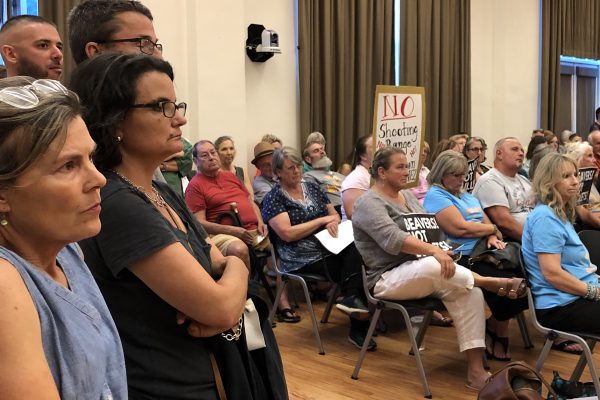MARTINEZ, Calif. – Martinez Planning Commission is sending the annual reports on implementation of the city’s General Plan and its Housing Element to the Martinez City Council for acceptance.
Christina Ratcliffe, Community and Economic Development director, and Contract Planner Brian Millar sent the 2017 reports to the Commission, which conducted a public hearing Tuesday to take comments on the documents.
These progress reports are due annually, and are sent to the Governor’s Office of Planning and Research and the Department of Housing and Community Development once the local body – the Council – accepts them.
The reports are on city activities from Jan. 1 to Dec. 31, 2017, and explain how land use decisions made by the city connect with goals, policies and implementation methods found in the current General Plan, Ratcliffe explained in her report.
The Housing Element, which is adopted in eight-year cycles, is one of the mandatory elements of General Plans, and consists of identification and analysis of existing and projected housing needs, the local government’s share of regional housing needs, a list of what would help as well as hinder meeting those needs and a program that shows a five-year schedule of actions the city intends to take to implement the Housing Element.
Martinez’s Housing Element was adopted in 2015.
While no one commented on the reports and the Commission readily agreed to submit them to the Council, Ratcliffe said the city will have to update its codes to comply with 15 bills that were passed by the state that became effective this year.
There are more bills under consideration that could force the city to make more revisions to its codes and how it approaches future General Plan and elements reports.
Some of those changes likely would require more effort by city staff initially, she told the Commission, but could make it easier for developments to be approved to help Martinez meet its own as well as Bay Area housing goals.
Chairperson Sigrid Waggener noted that the state may be getting fed up with local governments that drag their feet about assuring housing, especially affordable housing, is being built.
In the future, she warned, the state may begin issuing mandates, ending local autonomy and decisions about development.
The panel also learned that its approval earlier this month of DeNova Homes’ Vine Hill residential development on the former Pine Meadow gold course will be placed before the City Council May 30.
Mayor Rob Schroder filed the appeal that will give the Council a chance to vote on the mitigated negative declaration and vesting tentative map for the development, and Ratcliffe said Tuesday night that one of the development’s opponents, Tim Platt, had told her he, too, would be asking for an appeal.
In other matters, Sean Trambley was chosen the panel’s vice chairperson.



